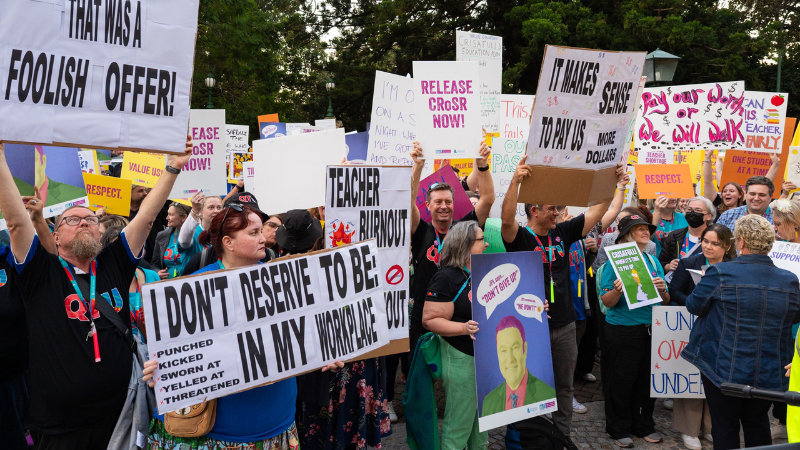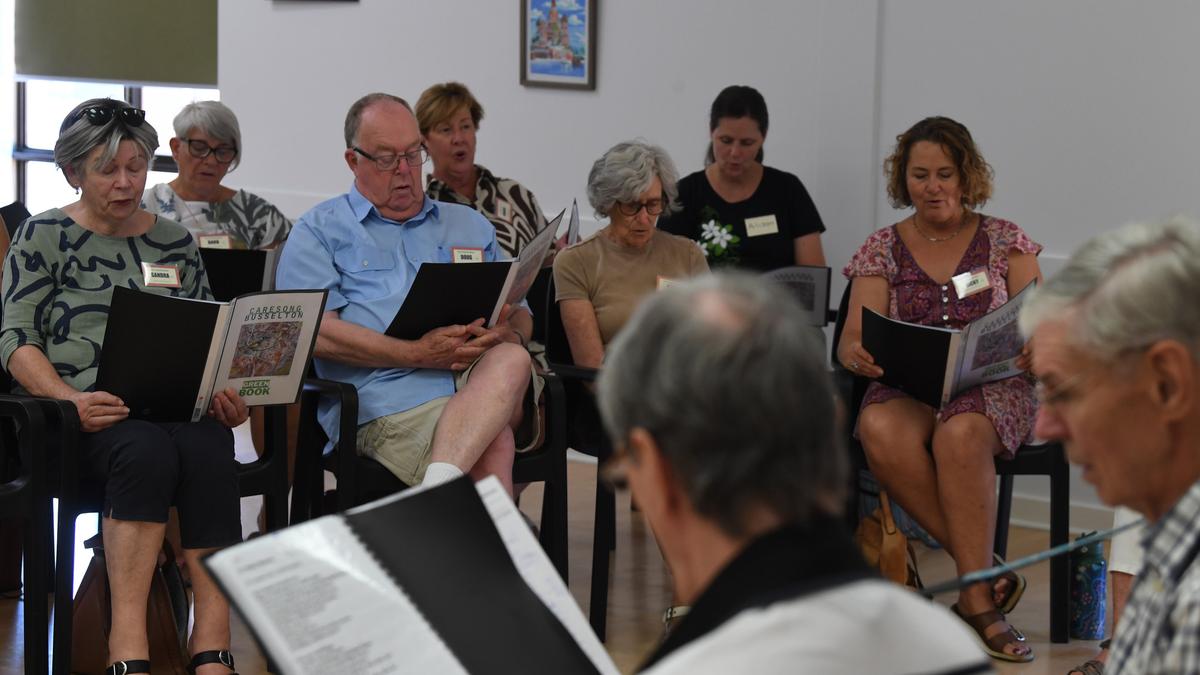
UPDATE: Today, over 36,000 Queensland teachers have launched a historic strike, the first of its kind in 16 years, demanding urgent reforms to address crippling workloads, rampant school violence, and a growing teacher exodus. This unprecedented action highlights a crisis beyond salary disputes, with educators calling for immediate changes to ensure safer working conditions and better support systems.
The Queensland Teachers Union (QTU) has made it clear that this strike isn’t solely about pay. While media outlets like the Courier-Mail have sensationalized the issue by framing it as a “greedy teachers’ pay” dispute, teachers are focused on critical issues affecting their profession. “We are not just looking at salaries; we are fighting for our safety and the future of education in Queensland,” stated Cresta Richardson, President of the QTU.
Teachers cite alarming conditions in schools, including increased incidents of violence from students, which the media continues to overlook. One retired teacher recounted, “I faced physical and verbal assaults from students multiple times a day. Many fear reaching out for help due to potential backlash from parents.” This stark reality starkly contrasts the media’s portrayal of a ‘youth crime wave,’ which has dominated political discussions without acknowledging the violence faced by teachers daily.
The strike comes as the QTU has been in negotiations with the Queensland Department of Education since February 2023, with 17 meetings held so far. However, both formal offers from the department, including an 8% salary increase over three years, have been rejected. Union officials argue that these proposals do not adequately address the broader systemic issues, including the urgent need for improved teacher retention and working conditions.
The QTU’s key demands include:
– Addressing the critical teacher shortage.
– Improving retention rates of experienced educators.
– Establishing safer workplaces to combat rising violence.
– Reducing excessive workloads, including unpaid overtime.
– Formalizing funding commitments for resources.
While negotiations continue, Education Minister John-Paul Langbroek acknowledged the challenges faced by teachers but emphasized that some issues raised fall outside the scope of enterprise bargaining. “We are working on conciliation with the teachers’ union and will continue to do so,” he said during an interview on ABC Radio.
As the strike unfolds, the QTU is urging the government to take immediate action to address these pressing concerns. Without meaningful changes, officials warn that the current crisis in recruitment and retention will deepen, putting students’ education at risk.
Next Steps: The Queensland Industrial Relations Commission is currently involved in conciliation efforts. The outcomes of these discussions will be crucial in determining the future of Queensland’s education system and whether teachers can return to classrooms under safer and fairer conditions.
As this situation develops, many educators and supporters are rallying online, sharing their stories and urging for immediate action. The impact of this strike is expected to resonate throughout the state, with potential long-term implications for the education sector in Queensland.
Stay tuned for more updates on this urgent situation as it unfolds.






